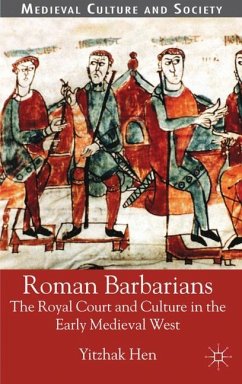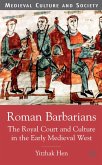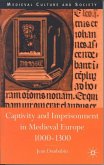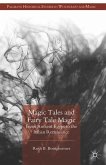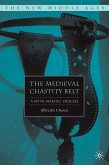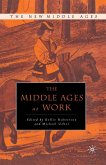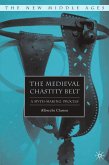This study investigates the place of the royal court and the operation of patronage in several European kingdoms in the early Middle Ages. It seeks to identify the roots of later medieval developments, and especially of the Carolingian Renaissance, in the centuries immediately succeeding the period of Roman rule.
'In this elegantly written series of case studies, Yitzhak Hen demonstrates the extent to which the barbarian heirs of Rome continued the Roman tradition of making their centres of political power also centres of learning, poetry, and culture. Without denying the violence of contemporary conquest and warfare, he shows how such rulers as the Ostrogoth Theoderic, the Vandal king Thrasamund, the Frankish sovereign Dagobert, and the Visigothic ruler Sisebut patronized poets, philosophers, churchmen and artists in their courts. The resulting image of court cultures between the fifth and ninth centuries both dispels the image of barbarian crudity and provides a context and prehistory of the cultural program of Charlemagne' - Professor Patrick J. Geary, University of California Los Angeles (UCLA), USA
'Yitzhak Hen's excellent book on the place of the royal court and the mechanisms of cultural patronage in the early medieval kingdoms of Europe breaks new ground. He provides a nuanced comparative analysis of the literary activites that can be associated with the Vandals, Ostrogoths, Visigoths, Franks and Lombards, and thereby offers a new and convincing perspective from which to assess the subsequent Carolingian achievement' - Professor Rosamond McKitterick, University of Cambridge, UK
'Roman Barbarians is commendably short and snappy, and in its pages students and newcomers will find much useful information.' - Simon Maclean, English Historical Review
'Yitzhak Hen's excellent book on the place of the royal court and the mechanisms of cultural patronage in the early medieval kingdoms of Europe breaks new ground. He provides a nuanced comparative analysis of the literary activites that can be associated with the Vandals, Ostrogoths, Visigoths, Franks and Lombards, and thereby offers a new and convincing perspective from which to assess the subsequent Carolingian achievement' - Professor Rosamond McKitterick, University of Cambridge, UK
'Roman Barbarians is commendably short and snappy, and in its pages students and newcomers will find much useful information.' - Simon Maclean, English Historical Review

